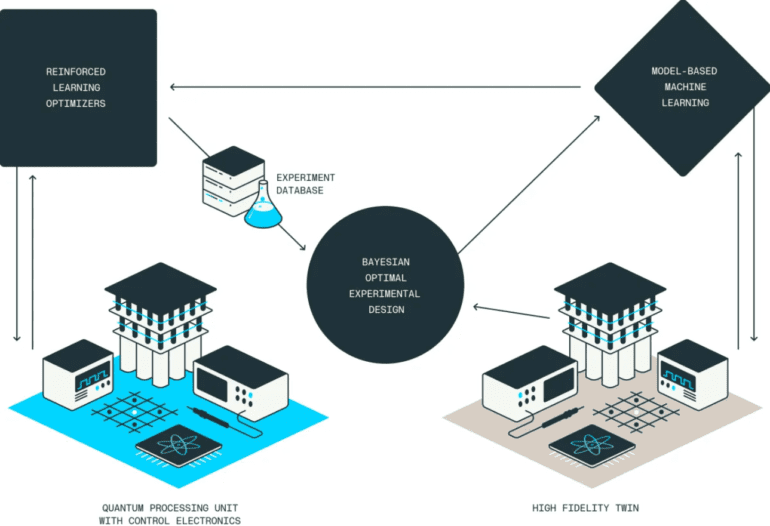TL;DR:
- Qruise, a spinoff of Forschungszentrum Jülich, is creating AI software to assist in quantum device development.
- The software, known as a “machine learning physicist,” aims to bridge the gap between simulation and real-world performance in quantum labs.
- By combining simulation technology with experimental data, Qruise enables researchers to optimize hardware parameters virtually.
- The ultimate goal is to read scientific papers, replicate results in simulations, and implement findings in quantum experiments.
- Despite being pre-revenue, Qruise has secured funding, a three-year runway, and is set to revolutionize quantum development.
Main AI News:
In the ever-evolving landscape of technological innovation, Qruise emerges as a formidable contender in the race to automate quantum device development. As the world grapples with the complexities of quantum computing, this startup, born as a spinoff from Germany’s prestigious Forschungszentrum Jülich, is pioneering a cutting-edge concept – the “machine learning physicist.” Qruise’s vision is to seamlessly integrate AI-powered software into the daily operations of quantum laboratories, effectively augmenting the capabilities of their human counterparts.
Quantum hardware development presents a unique set of challenges, primarily rooted in the inherent limitations of predictive simulations during the design phase. Nicu Becherescu, Qruise’s astute business development manager, elaborates on this issue, highlighting the intricate interplay of various physical phenomena and the subtle impact of factors such as environmental noise and manufacturing imperfections. The resulting disparity between simulated and actual performance necessitates a novel approach, and that’s precisely where Qruise comes into play.
Qruise’s innovative solution hinges on the fusion of simulation technology with real-world experimental data collected from quantum hardware. Researchers utilizing Qruise’s platform can select a set of experimental data and enlist the software to create a “digital twin” of the experiment. Through iterative virtual simulations, Qruise optimizes the hardware’s parameters and controls. The ultimate objective? To create a system that can decipher complex scientific papers, replicate their results in simulations, and, if applicable, translate these findings into real-world quantum experiments.
The crux of Qruise’s success lies in its collaborative synergy between domain experts in the laboratory and the formidable Qruise platform. The outcome is an intricately detailed predictive simulation of quantum systems, offering invaluable insights to enhance the next iteration of device development and overall performance.
Qruise’s audacious mission may seem like a daunting endeavor, but their track record speaks volumes. Founded in late 2021, the company has already secured substantial backing from the Helmholtz Validation Fund. Their strategic roadmap is poised to tackle the intricate challenges associated with quantum control, enabling precise manipulation of quantum device properties to accomplish specific tasks.
While Qruise remains in its pre-revenue phase, boasting a talented team of approximately 20 individuals and ongoing beta tests in undisclosed laboratories, the company’s financial prospects are solid. Remarkably, they have managed to secure a three-year runway without external funding, operating at a commendable burn rate of around $2.25 million annually, as asserted by Becherescu.
The quantum landscape is abuzz with enthusiasm and investment. According to a 2022 survey commissioned by quantum hardware startup Classiq, a staggering 83% of companies have already ventured into quantum research and technology. An overwhelming 94% of respondents foresee quantum’s substantial benefits for their respective industries.
Conclusion:
Qruise’s innovative approach to automating quantum device development holds significant promise. By addressing the challenges in predicting quantum hardware performance, they are poised to streamline R&D efforts and accelerate breakthroughs in this burgeoning market. As quantum interest continues to surge, Qruise’s platform has the potential to reshape the landscape, making quantum computing more accessible and impactful for a wide range of industries.

